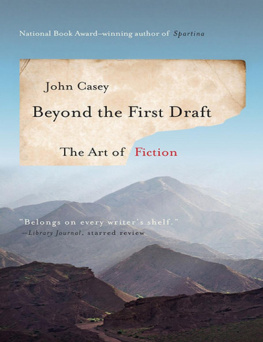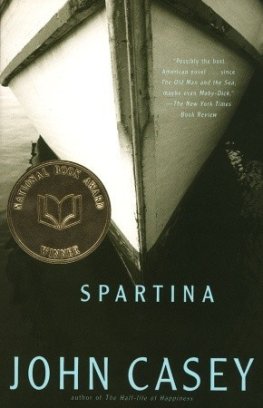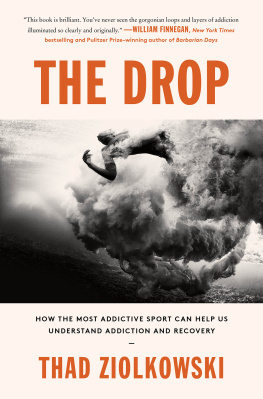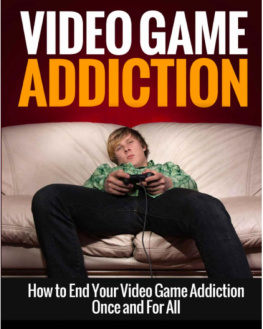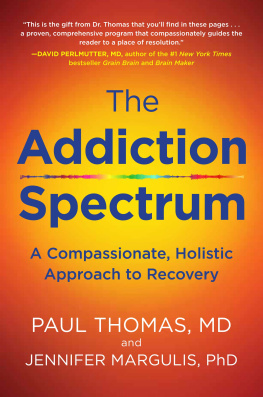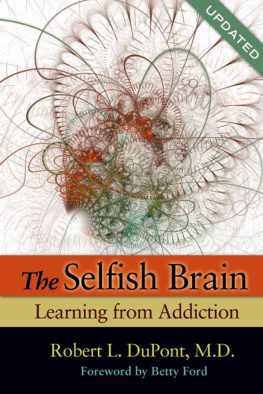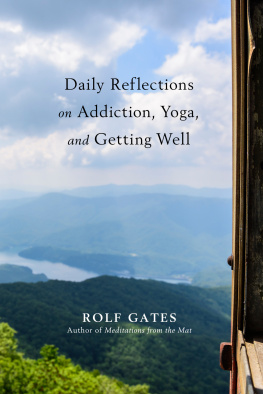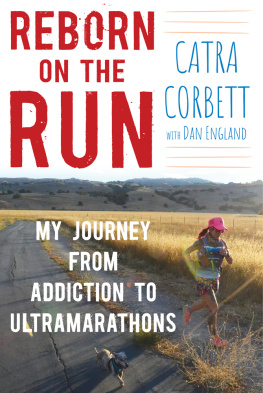John Casey was born in 1939 in Worcester, Massachusetts, and was educated at Harvard College, Harvard Law School, and the University of Iowa. His novel Spartina won the National Book Award in 1989. He lives in Charlottesville, Virginia, where he is a professor of English literature at the University of Virginia.
I Got Fat in Law School
I got fat again in law school. I lost endurance and agility. The low point was a pickup softball game. I played third base, fielded a ground ball but wildly overthrew to first base. Then I ran for a pop foul and fell headlong in the dirt, a spectacle that got laughs from the business-school team.
Id been a high-school athlete, football, soccer (at that time a winter sport), and track and field (100, 220, hurdles, shot put, javelin)small school, small track team. We multitasked. I plumped up spring of sophomore year in college, went mildly nuts, got kicked out. I got back in shape during basic training at Fort Knox from the usual marching and bayonet drill, plus playing flag football on the Company C, Ninth Regiment, third training division team. The team captain was Second Lieutenant Hal Greer, then just out of college, soon to play guard for the Philadelphia 76ers. Hal Greer was a superb athlete. When he turned the corner on an end run, he had an extra gear. Running interference for him, Id sense him behind me, and then hed be gone. He also took our flag-football games totally seriously. One of my jobs was to get between him and the referee when he was outraged at a bad call. He said, Dont let me get thrown out of the game, Private. I authorize you to take hold of me.
The high point of my season was when Lieutenant Greer threw me a pass in the end zone. I dove for it, caught it, and tucked it in as I fell. Lieutenant Greer yelled, Casey! Youre not a dud! Still sweet a half century later.
The teams name was The Night Fighters. Lieutenant Greer may have thought this up. It certainly wasnt me or the only other white boy on the team, a fireplug lineman whod played for Massillon High School in Ohio. It was flag football, but there was all-out blocking, and nipping the flag from the ball carriers web belt often involved tackling. We won the post championship, mainly because Lieutenant Greer was our companys executive officer and pushed the team members during calisthenics and bayonet drill. He kept his eye on us in the field, encouraging us to run rather than do the easy Army double time when we were asked to deliver a message to the first sergeant or company commander. We learned to volunteer. Lieutenant Greer had an edge, and he willed us to have an edge.
Back to college, on to law school. A decline from catching a touchdown pass to sprawling out of reach of a pop foul.
After law school, I went to work for a congressman. I kept a strange schedule. Day of work at the office, bar-exam prep course in the evening, at night jogging to a track and running a mile, then two. Then I took to the Chesapeake and Ohio Canal towpath on weekends. Nowadays theres a crowd of joggers and bicyclists. Back then a lot of people out for a stroll stared or made jokes ranging from corny (Hey thereyou training for a race or racing for a train?) to rude (Arent you kinda hefty to be running in this heat?).
After a while I got leaner and fast enough not to hear more than a word or twoeither that or I began to get runners high, the onset of endorphins (though I didnt know the word then), and was encased in the rhythm of what I was doing.
The Social Life of the
Long-Distance Runner
I wrote The Social Life of the Long-Distance Runner more than forty years ago. The title is a play on The Loneliness of the Long Distance Runner, a grim story and a grim movie, one that only film buffs and older people remember. When I reread this piece I found it in several places very youngboth strainingly lyrical and wiseassbut it reminded me that in the late sixties there were few joggers, and those few attracted wiseass remarks. The essay was the first piece in a national magazine about what was to become a widespread pastime. On the canal towpath in Washington, D.C., there are now more joggers than walkers, and no one gives them a second glance. There are places in the world where the sight of bare legs and arms is still shocking. An old student of mine got run in by the moral police in Saudi Arabia for jogging in Bermuda shorts. There are lots of joggers in Rome but mainly in parks. Once when I was jogging back to my apartment through Testaccio, an older woman, in black from head to toe, called out to me, Coprati, coprati, giovanotto! (Cover yourself, cover yourself, young man!) I was fifty-one, pleased to be called giovanotto. She may have been offended by bare skin, or she may have been expressing the national cold phobia. Two generalizations about Italians are true: they love children and fear cold drafts. Old women and men often told me to put more clothes on my two small daughters. They said, Prenderanno un raffredore (Theyll catch cold) and then lovingly patted their cheeks. Che carina! (How darling!)
If you walk through any of the parks in Washington during the warmer months, you are likely to see apparently masochistic young men running by you, their faces sweaty, flushed, and tortured, their mouths gasping noisily for air, their motley outfits flapping wetly against their legs and backs as they heave along. Why do they do it? For future glory on the playing fields, you may imagine, for sport, for manly beauty, for Spartan well-being. But notunless something is awfully wrongfor pleasure.
I thought so as well. From my soccer-playing days I remembered running laps, wind sprints, and other devices of tedium and torture, designed, it seemed at the time, to weed out the unenthusiastic. It is true that friends of mine, usually longer-legged and somewhat reedy, had described attaining a certain pleasurable trance while running long distances, but I had put them in the same category as people who sat through two consecutive showings of Last Year at Marienbad.
However, on a day a spring or so ago that I was spending in the field with my Army Reserve unit, two sergeants appeared to give a lecture on physical fitness. They said that the Vietcong could travel, trotting stealthily along in their tennis shoes, forty miles a night. The sergeants invited us to run along with them for just a few miles. They set a brisk pace, littering their trail with us until they shed the last body before the three-mile mark. They still had enough breath to retrace their steps and insult each of us individually. I will not say it was cause and effect, but that summer I took up distance running through the parks near my house. First downhill.
Battery Kemble Park runs from Foxhall Road to MacArthur Boulevard for a distance of about a mile and a quarter, most of it parallel to Chain Bridge Road. The only disadvantage to running down through the park is that you have to climb back up. At that time, running


